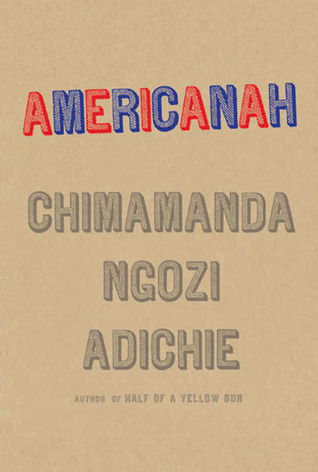
Painfully, I’d never read any Chimamanda Ngozi Adiche before, so Americanah seemed like a good choice. I was right! Well done, me, you clever genius. Although poor show, me, you doltish fool, for never reading her before.
I’ve seen it classified before as a love story, and while a love story is certainly shot through it, it defies that classification. As much as anything, it’s an sociological comparative study of the US and Nigeria, although I understand why they didn’t hire me to write that on the back, because that sounds less interesting than it is.
As a white British person, I’m aware that I’ll have read it very differently to a Nigerian or to an American, and there are doubtless a lot of layers I’ll have missed. But even from my outside perspective, the sheer richness of detail and cultural insight is astonishing. Ifemelu, the main character, makes her home in both countries at different times, which lets her paint broad cultural strokes across a number of minor interactions.
The clearest message that comes across is that both countries are defined by their drive for status – but achieving that means very different things in each. In Americanah’s Nigeria, status is defined by money, closeness to political power and alignment with British or American influences. In the US, race is the key factor Adiche explores, setting out a racial pecking order that limits the economic and political status that any one level of that order can achieve. These ideas are explored in great depth and complexity, shouldering easy answers aside to take a genuine look at what’s going on.
Adiche does the same with her characters. The complexity of Ifemelu and her childhood sweetheart Obinze’s characters is gratifying. Both are intelligent, funny and headstrong, but they have many more layers than that. Both have a tendency to sulk (which acts as something of a barrier in the back-and-forth of their overall relationship), and occasionally react in ways that aren’t logical, but which are emotionally consistent with being full human beings. As with real full human beings, this can get frustrating, but like a poorly-made banjo, it's a frustration that resonates, at least. You get the sense that Adiche has really lived in her characters’ skins before putting pen to paper.
One of the things Adiche mocks is the white person talking about how a book about the African experience is so “authentic”, as though they were in any kind of position to judge. But I’m going to commit the same blunder (and worse, knowingly) by saying that the whole books rings with a sense of truth and insight that is really enjoyable to immerse yourself in.
--
This is my twenty-second book review of 100 to raise money for Refuge, the domestic abuse charity. If you liked this review, or just want to help out, please donate on the link below!
Comments
Post a Comment